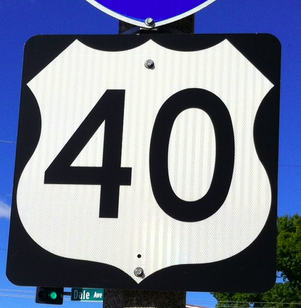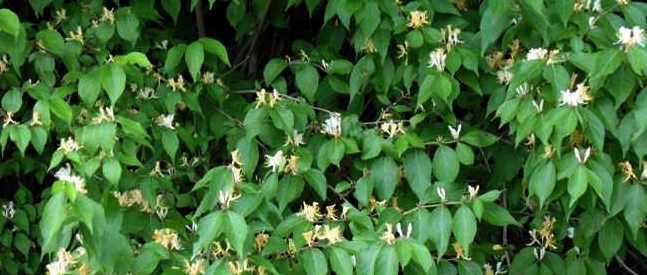Dale Dufer, a St. Louis (Dogtown) artist and woodworker, is passionate about eradicating Bush Honeysuckle, an invasive, non-native plant that “has taken over our region’s woodlands, roadways, parks and streams,” he says in a press release, and he’s suing.
The Trial of Bush Honeysuckle, a free public education event, will take place Wednesday April 4 at 1 p.m. in the downtown St. Louis’ historic Old Courthouse. The “lawsuit” will seek redress for damages to the biodiversity of our region’s native plants.
The historic setting and participation by distinguished local jurists and expert witnesses will dramatize the ecological issues caused by Bush Honeysuckle. This species of plant has seriously degraded the biodiversity of our region. The trial will also present actions people can take to stop the invasion and reverse the damage.
Dufer is the “plaintiff” in the case. “Bringing suit against a plant uses the context of our justice system to present all sides of this issue,” he said. “A creative presentation of the problems with Bush Honeysuckle can help people understand them and be willing to take action.”
Serving as Judge will be Hon. Anna C. Forder, St. Louis City Circuit Court, retired.
Kathleen Henry, Esq., will lead the prosecution team; Henry is Executive Director of the Great Rivers Environmental Law Center in St. Louis. Edward Heisel, Esq. will lead the defense; Heisel is a former Executive Director of the Missouri Coalition for the Environment.
Witnesses will include experts in plant conservation and ecological restoration, as well as individuals who both appreciate and struggle to remove Bush Honeysuckle. Participants serving as jury will decide the case.
“Humans moved this species of honeysuckle, Lonicera maackii, out of its native region of Asia, where it had natural controls,” says Dufer.
“We’ve done this with many plants and animals before we considered ecological consequences. Bush Honeysuckle is a really successful invader; it has taken over our region’s woodlands, roadways, parks and streams. Conservation agencies that once introduced it are now working together to remove and control it. Individuals can help.”


I did not understand that Bush Honeysuckle was a problem on our property, until it was. Now the task of controlling it is daunting.
Honeysuckle was the first thing I got rid of when I bought my house. It was growing all over a fence. Next went the overgrown yew bushes.
See you in court, dandelions.
Dandelions are bee food. Save the dandelions! Please don’t poison them, or we won’t have any bees. 🙁
I’d like to see purple winter creeper on that list too. I hope to be there on Wednesday.
Can we please get Bradford Pear trees on the docket?
Comments are closed.